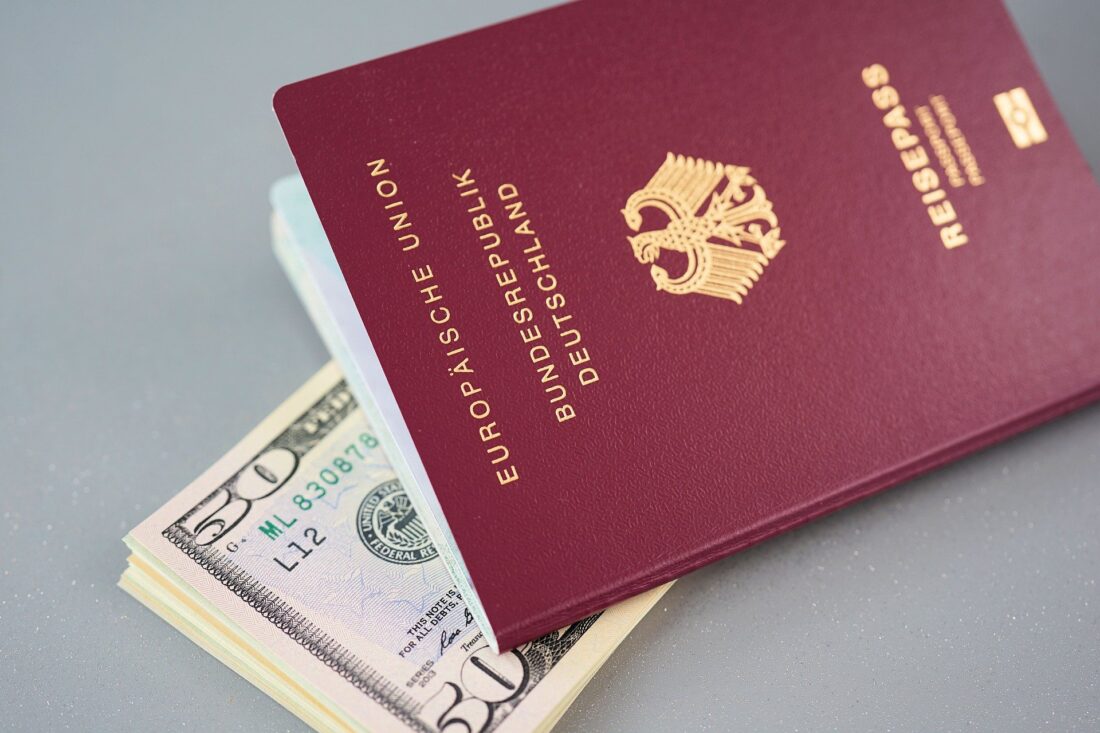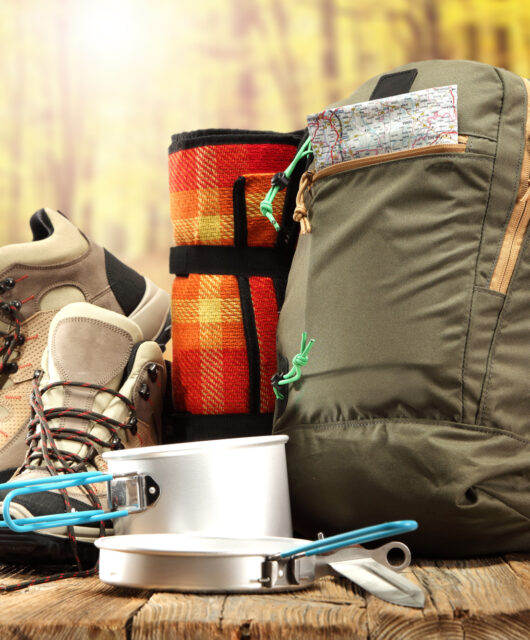How to Create a Travel Budget for a Trip You’ll Love
 Last year was a challenging year in many ways. One area that many put on hold was travel — whether that be for work or leisure. As we begin to ease back into normalcy, getting away on a much-needed trip is top of mind for many.
Last year was a challenging year in many ways. One area that many put on hold was travel — whether that be for work or leisure. As we begin to ease back into normalcy, getting away on a much-needed trip is top of mind for many.
Though planning a vacation is an exciting prospect, it can come at a hefty price. You need to plan accordingly so you don’t stress about money. So how do you build a travel budget while still doing the things you love most?
Begin by deciding what type of trip you want to take and where. Is it a long weekend road trip near your home? Is it time to book that dream vacation abroad? Picking your destination and length of stay is the first step in determining your budget.
Say you want to take a skiing trip to Colorado in December. You decide to save up $3,000 for the trip. If you start saving in June, that gives you six months. From June to December, you will need to put $500 per month towards your travel account. Strategies like using your debit card so you stick to your budget can be key to not overspending.
Look at your monthly budget for places where you can cut down expenses to save up faster. Checking your bank statements as you build your budget will give you a good idea of small, miscellaneous things you buy. This will pinpoint areas, such as eating out or coffee runs, where you can reduce spending.
To make it easier to track your progress, open a separate online savings account for your travel budget. This will let you see how close you’re getting and keep your funds separate so you won’t dip into them. You can sometimes find a slightly higher interest rate for online savings accounts, which is a bonus.
When you’ve hit your goal, it’s time to create a budget that lets you love your trip. Start by making a list of what’s most important to you.
Are you a foodie? If so, this will be an area where you won’t want to sacrifice. If you hate driving, maybe you’ll need a higher transportation budget so you can fly. Once you know your must-haves, you can find ways to save in categories that don’t mean as much to you.
Table of Contents
How to Save When Building Your Travel Budget
There are four main areas within your travel budget: transportation, accommodations, food, and activities or experiences. It’s a good idea to budget for transportation and accommodations first, as these tend to be higher-ticket items.
Keep in mind that some destinations are more expensive than others. Some are also cheaper in the off season; you can save a ton of money by traveling then. Also, many flights and hotels are cheaper during the week compared to the weekend. To look for good deals, check out online travel newsletters and blogs.
Saving on Transportation
To save on flights, compare different airlines and airports near you. Booking flights ahead of time can also give you huge savings. Sites like Skyscanner and Momondo are good search engines for low-cost flights.
Once you arrive at your destination, you can save on transportation by taking public transit if it’s available. This could be a less-expensive option in cities like New York or London. In a city like Denver, however, it might make more sense to take an Uber or rent a car. You can also explore your destination on foot.
Saving on Lodging and Accommodations
When budgeting for accommodations, assess what’s most important to you. Will you be constantly on the go and just need a place to lay your head? Or are you looking to sleep in and order room service? Your goals here will help you decide whether a hotel, Airbnb, hostel, or campsite will be best for you.
Of course, you can also mix it up and stay a few nights in a budget hotel and a few in more deluxe accommodations. This can help you save money without sacrificing luxury altogether. Check out VRBO, Hostelworld, or Booking.com to find accommodations that meet your requirements and your budget.
Saving on Food and Beverages
Next, set a dollar amount for your daily food budget. If your accommodations offer complimentary breakfast, that’s a big cost savings right there. If you’ve opted for an Airbnb, you can cook some meals yourself and treat yourself to others. Fortunately, food doesn’t have to be costly to be satisfying. An inexpensive lunch at a sidewalk crêperie could become the best food memory of your trip.
And don’t forget to budget for drinks. You may not want to forgo wine in California or beer in Germany, but the cost of alcoholic beverages can really add up. Keep in mind, too, that many countries outside of the US don’t provide free refills on soft drinks. You can save money by ordering water, provided it doesn’t come in expensive bottles, as is common in Europe.
Saving on Activities and Experiences
The last major item to budget for is your activities and experiences. These could include anything from museums and shows to sporting events and shopping. Base your budget on what’s most important to you.
If souvenirs mean nothing to you, cross them off your list. Choose a whale-watching excursion or cooking class instead. If you love museums, look up their pricing and days of operation. Some offer a discount on a certain day, while city museum passes may provide access to numerous sites at a cost savings. You can sometimes find huge discounts on an attraction or experience with a Groupon or other deal.
Staying on Track
Now you’ve divided up your travel budget and assigned an amount to each category. How do you stick to the plan? Track your spending as you go to stay on budget. Writing down what you’ve spent each day will help you stay accountable and not worry about going over. If physically writing down your expenses isn’t your cup of tea, there are budgeting apps out there that will do this task for you.
Some choose to use a specific travel credit card to digitally see all their expenses at a glance. Or you can use an app like Google Sheets on your phone to do your tracking with ease. Some people look at a budget as restrictive, but really, it’s giving you permission to spend. By having a plan, you can be stress-free in your shopping and adventuring on a trip you love.
A Final Note About Travel Insurance
One area not to cut out of your budget is travel insurance. Though you can save a bit by forgoing insurance, if something happens, you’ll be glad to have it. Whether it’s a hurricane or a family emergency, you can lose a lot of money if an unforeseen occurrence forces you to cancel everything.
If the COVID-19 pandemic has taught us anything, it’s that unexpected things can come up. Protect yourself and don’t skimp on this expense.









